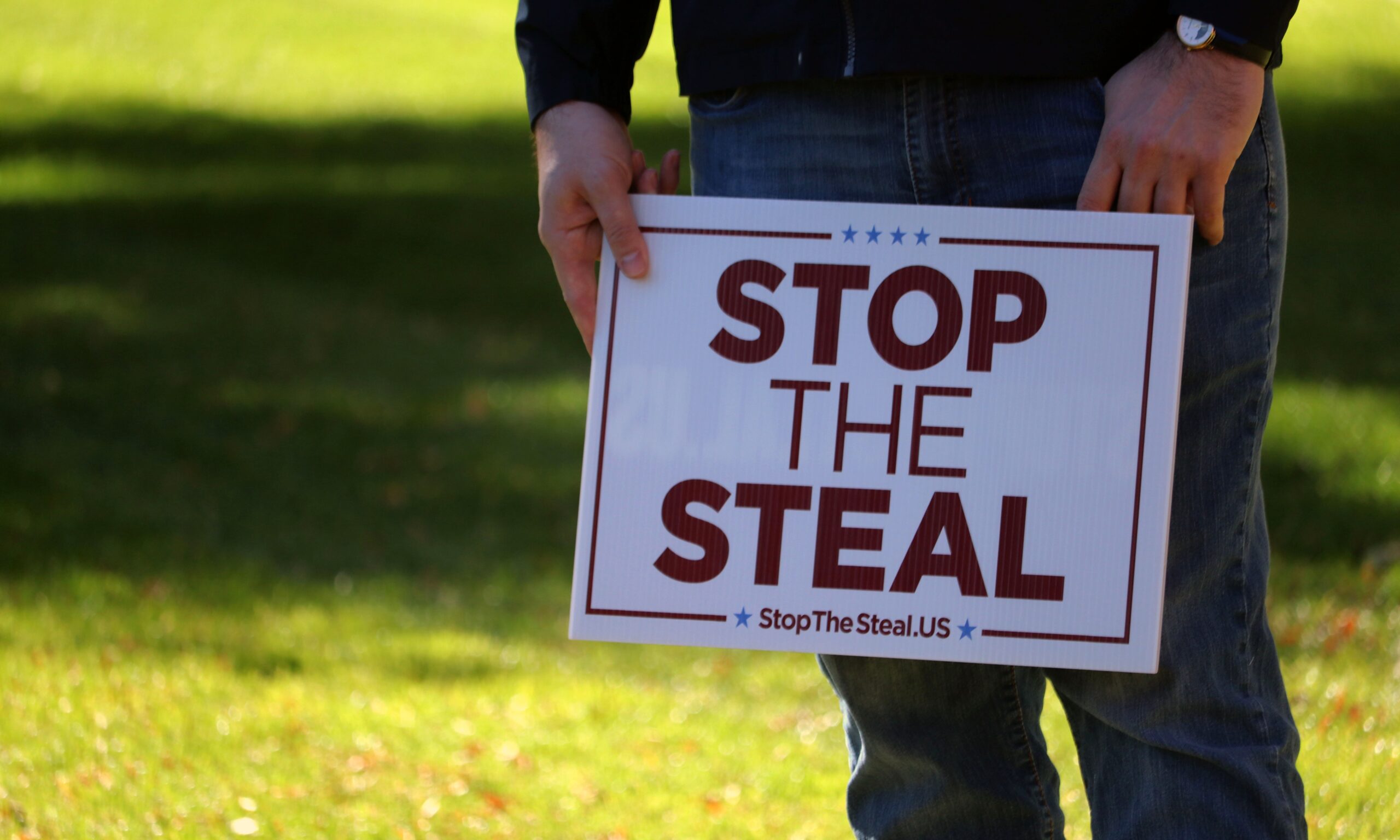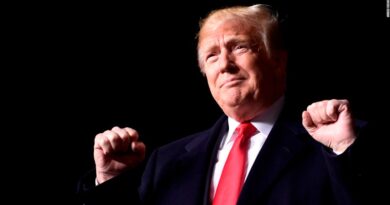Legislative election committees catered to conspiracy theorists

Republican-controlled committees in both chambers of the Arizona legislature that were charged with vetting election-reform bills used their time this year to cater to fringe right-wing conspiracy theorists and to approve a plethora of measures that would make big changes to how elections are run in this state.
Few, if any, of the bills that passed through both committees and their respective chambers are bound to become law, with Democratic Gov. Katie Hobbs ready with her veto stamp, but that hasn’t stopped Republicans from proposing and voting for them anyway. Hobbs has already vetoed 24 bills since the legislative session began in January, and there’s no sign that she intends to stop.
Both the Senate and House elections committees, chaired by Sen. Wendy Rogers and Rep. Jacqueline Parker, respectively, began meeting in January and had their last meetings last week. Neither Rogers, who has cut a national profile as a prominent proponent of myriad debunked election conspiracies, nor Parker responded to requests for comment on this story.
The two women used their committee meetings to host presentations by election conspiracy theorists and then to advance legislation that would cater to supposed election problems and alleged fraud at the heart of those conspiracy theories.
GET THE MORNING HEADLINES DELIVERED TO YOUR INBOX
Those speakers include people like Heather Honey, a participant in the Arizona Senate’s partisan “audit” of the 2020 election and is a director at Verity Vote, who in January gave a presentation to the Senate Elections Committee on ballot-chain-of-custody issues. During the presentation, she brought up some of the same issues she testified to as a witness during the December election challenge trial of failed Republican gubernatorial candidate Kari Lake.
Honey testified during the trial that she had used public records requests to investigate how well Maricopa County complied with chain-of-custody laws for early voting ballots, but said she never received the documents for around 292,000 early ballots dropped off on Election Day. Honey claimed in her presentation to the Senate that there were insufficient chain-of-custody documents for 35,563 ballots, saying that it was impossible to know if those ballots were illegally added to the mix.
But when Kari Lake presented the claim to the Arizona Supreme Court, in the appeal of her election suit, that the same number of ballots had been illegally “injected” along with legal ballots, the court dismissed it for having no basis in fact.
The “record does not reflect that 35,563 unaccounted ballots were added to the total count,” the court wrote in its response to her petition.
The county already uses barcodes to identify each individual ballot envelope that it sends to voters to ensure that no one casts more than one ballot. That means any potential injection of ballots would have to come from a voter who hadn’t yet cast a ballot or who didn’t intend to.
But that didn’t stop the Senate Elections Committee from approving House Bill 2691 last week, which would codify the requirement to create a more strict chain of custody that would mandate a signature at each point of contact with the ballot, along with the date and time of the delivery or transfer of ballots.
Last week, the Senate Elections Committee forwarded House Bill 2305, which focused on allowing both a Republican and Democratic observer to watch each stage of the signature verification process. The idea is one that Shelby Busch, of the conservative group We the People Az Alliance, focused on heavily during a presentation to the committee in late January, citing supposed faulty signature approval for early ballots.
But Busch’s presentation only included examples of mismatching signatures from the 2020 election, not the 2022 election. Maricopa County went into considerable detail in debunking the 2020 signature claims in a January 2022 report. In addition, the signature verification process has been improved in the two years between those elections.
Between 2020 and 2022, Maricopa County Recorder Stephen Richer, a Republican, ramped up training for workers who review signatures, gave those workers more voter signatures for comparison, added an audit of approved signatures and upped the number of workers reviewing signatures, according to a review of county documents and data by Votebeat.
Rogers on April 3 submitted a public records request to the county, asking to inspect the ballot envelopes and example signatures used in the 2022 election. As a committee chair, Rogers has the power to subpoena the county for information, as the Senate did in 2021 to conduct its partisan election review. It’s unclear why Rogers opted for a public records request instead of issuing a subpoena.
Claims that Maricopa County didn’t follow signature verification rules for early ballots during the 2022 election is the only portion of Lake’s election challenge suit that is still alive, after the Arizona Supreme Court sent that issue back to the trial court. All other portions of her lengthy suit were either dismissed or rejected by the courts.
“There has been no proof of wrongdoing offered in the signature verification process,” Democratic Sen. Priya Sundareshan said during a Senate Elections Committee meeting March 29. “This clearly stems from conspiracy theories and allegations of shenanigans in the ‘dead of night.’”
Republican Sen. Sonny Borrelli responded that Busch had provided examples of 20,000 signatures that didn’t match during her presentation to the committee.
“I don’t know how much more proof you need,” he said.
But many of the examples she provided from 2020 weren’t improperly approved, and had in fact been cured, meaning that elections workers contacted the voter and affirmed that the ballot was cast by the voter it was sent to. State law requires election officials to do exactly that if an early ballot signature doesn’t match what’s on file for that voter.
Some bills that made it through the elections committees were considerably watered down through the amendment process, such as House Bill 2308, which was approved by the Senate along party lines on Tuesday.
The bill was initially written to bar any future secretary of state from handling any part of an election they are a candidate in, after both Lake and failed GOP candidate for Secretary of State Mark Finchem repeatedly accused Hobbs of a conflict of interest because as secretary of state, she was required to certify the results of the governor’s race that she was a candidate in. (Republicans in 2018 didn’t raise the same concerns when Michele Reagan, the incumbent GOP secretary of state, oversaw that year’s primary election in which she was a candidate.)
While the secretary of state oversees elections and gives guidance on how they should be run, each county is in charge of actually running elections, without direct involvement from the secretary of state. The secretary is required by state statute, along with the governor, to certify the results of elections, once they are submitted by the counties.
Former secretary of state and current Republican state Sen. Ken Bennett, who certified his own loss in the governor’s race in 2014, voted in favor of the bill, saying that part of the legislature’s job was to nix the appearance of conflicts of interest.
The legislature approved an amendment to the bill from Bennett that specifies that the secretary of state would still be allowed to certify the results of the statewide election canvass, but is prohibited from personally performing any aspect of the election operations in which the secretary is a candidate.
Sundareshan told the Senate Tuesday that she believed the bill stemmed from conspiracy theories and added that plenty of people in statewide offices have played roles in elections they were candidates in.
“This targets one statewide officer without sufficient reason,” Sundareshan said.
After issues with ballot printers and tabulators during the 2022 election in Maricopa County that caused some tabulators to be unable to read some ballots, resulting in delays and voter frustration, several GOP candidates, including Lake, claimed without evidence that the issues were a deliberate ploy to stop Republicans from voting on Election Day.
In response, the elections committees approved Senate Bill 1140, which, before amended, would have banned the state from using voting centers, instead forcing them to return to a precinct voting model. Any voter from anywhere in the county can vote at any voting center, while precincts require each voter to show up at their specified voting site that serves a small, set population. Ballots of voters who show up at the wrong location are not counted.
The bill was later amended to allow counties to use voting centers, but only in addition to precinct locations.
Supporters of the bill said that disallowing voting centers would get rid of the printer issues in Maricopa County since precincts use pre-printed ballots instead of ones that are printed on site.
Some other bills approved by the committee that are based on unproven theories include:
- House Bill 2307, which would require hand counts of all ballots in Arizona, a practice that election experts said would be logistically impossible. This bill never made it to the House floor for a vote and is unlikely to move further.
- House Bill 2233, which would give candidates who go to court to contest election results more time to prepare their cases, widen the basis upon which an election claim can be filed and give greater access to election documents for candidates to use as evidence, as well as send appeals directly to the Arizona Supreme Court. Chandler Republican Rep. Liz Harris, who introduced the bill, said she worked on it along with one of the lawyers who represented Lake in her election contest. This bill never made it to the House floor for a vote and is likely dead.
- Senate Bill 1566, which would cancel every voter registration in the Grand Canyon State on April 2, 2031, and every 10 years after that, forcing all voters to re-register each decade. This bill never made it to the Senate floor for a vote and will not move further.
SUPPORT NEWS YOU TRUST.
This article has been archived for your research. The original version from Arizona Mirror can be found here.


